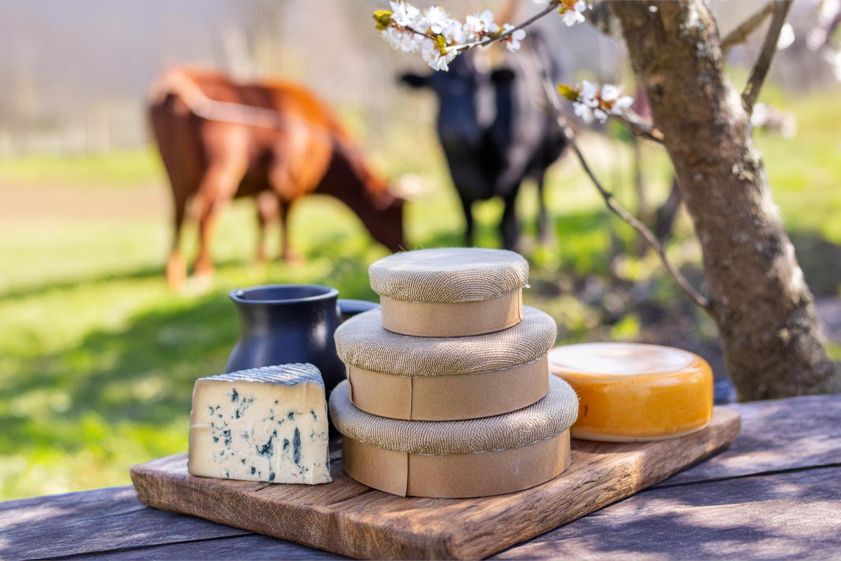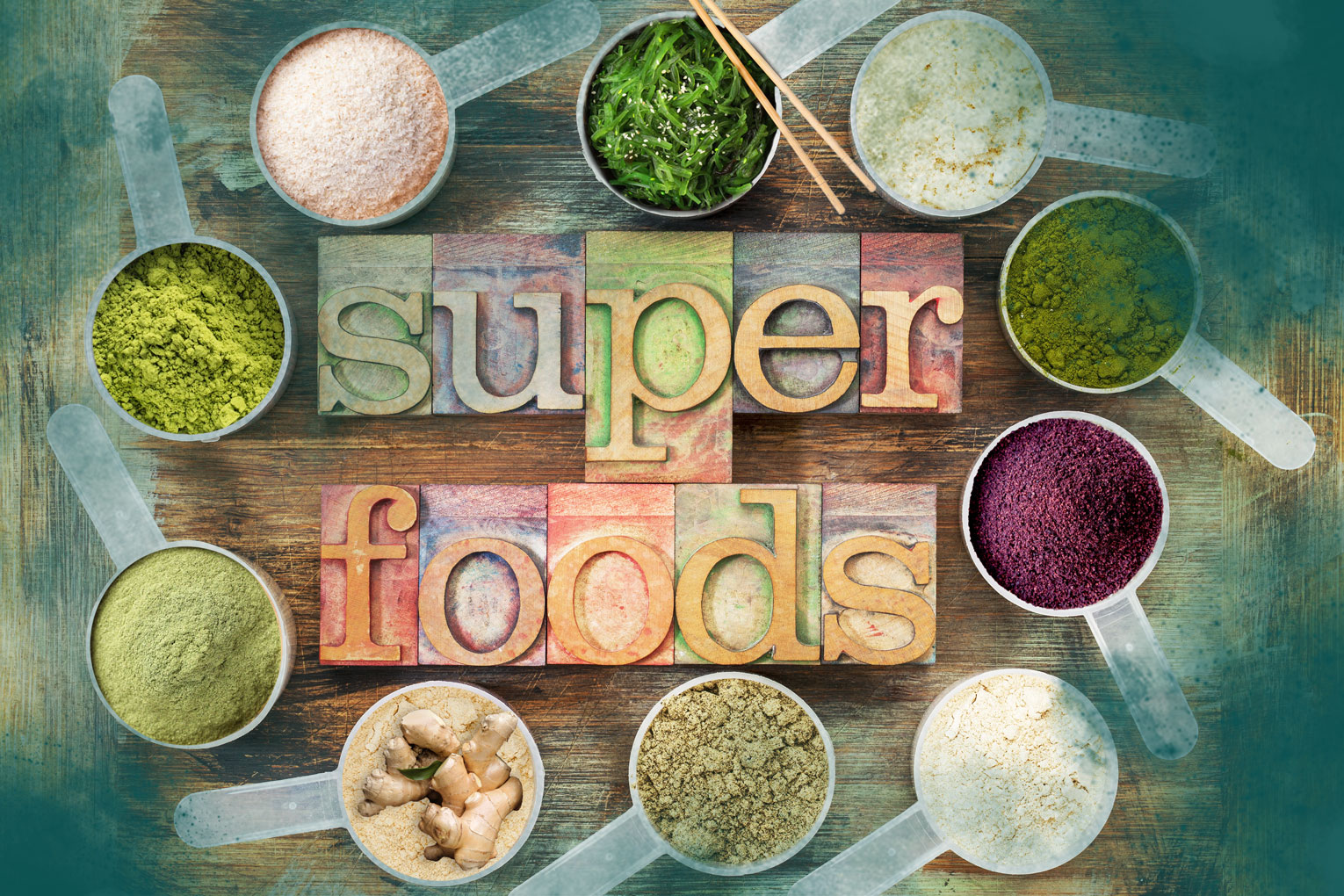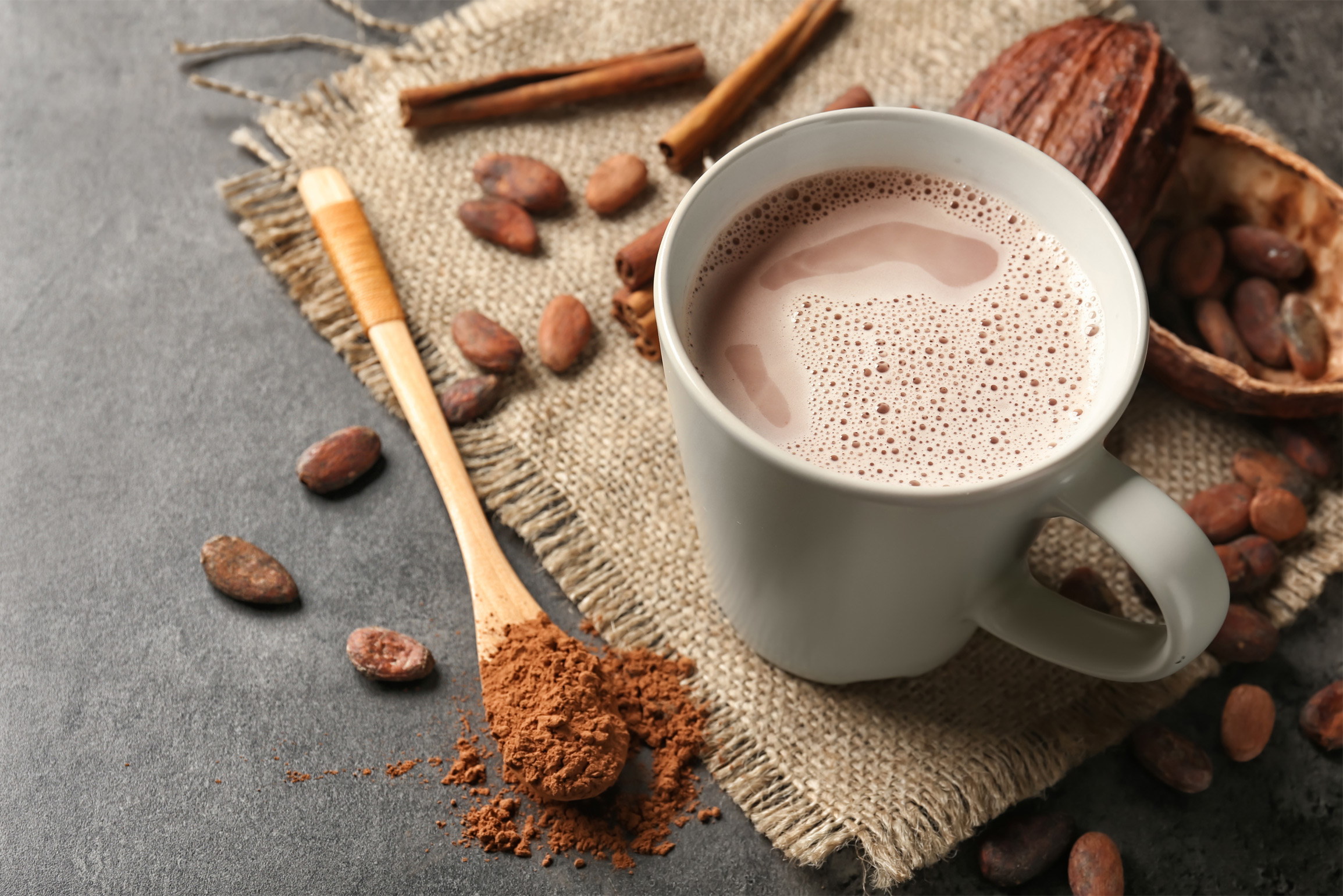How Organic Cheese Is Made? Its benefits, Types and more
Have you noticed the soaring demand for organic cheese lately? Join us in this blog as we uncover the fascinating journey of organic cheese production, explore its myriad benefits, and discover the diverse array of tantalizing organic cheese varieties.
The Organic Dairy Farm
The journey of organic cheese begins on the lush pastures of certified organic dairy farms. These havens of ethical practices adhere to stringent regulations that prioritize the well-being of livestock and the preservation of the ecosystem. Cows graze freely on organic pastures, nourished by nutrient-rich grasses and forage untainted by synthetic fertilizers or pesticides.
Holistic Animal Welfare
Organic dairy farming embraces a holistic approach to animal welfare, ensuring that cows are raised in a stress-free environment with ample space to roam and exhibit natural behaviors. Preventive measures, such as homeopathic remedies and alternative therapies, are favored over routine antibiotic use, fostering a harmonious coexistence between livestock and the land.
Sustainable Farming Practices
Organic dairy farmers prioritize sustainable farming practices that nurture soil health and biodiversity. Crop rotation, composting, and the judicious use of organic fertilizers replenish the soil’s fertility, creating a self-sustaining ecosystem. These practices not only enhance the nutritional value of the feed but also contribute to the overall well-being of the herd.
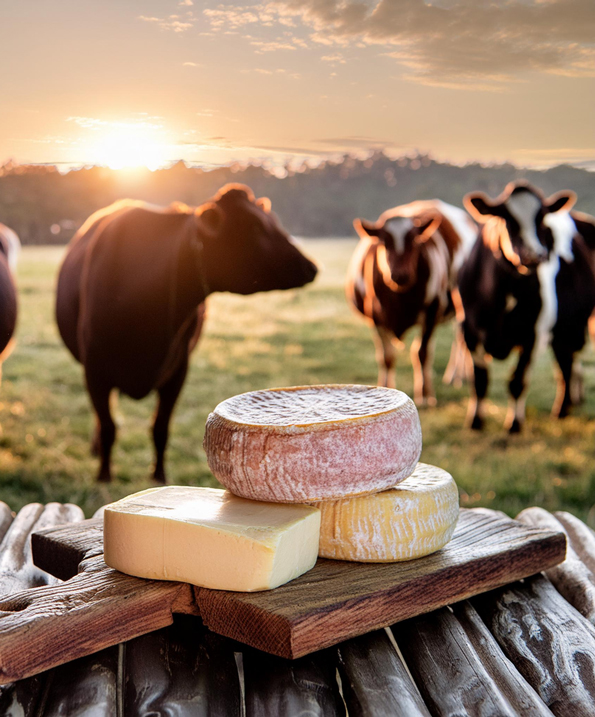
The Organic Cheese-making Process
Once the organic milk has been procured from these ethical dairy farms, the cheese-making process commences:
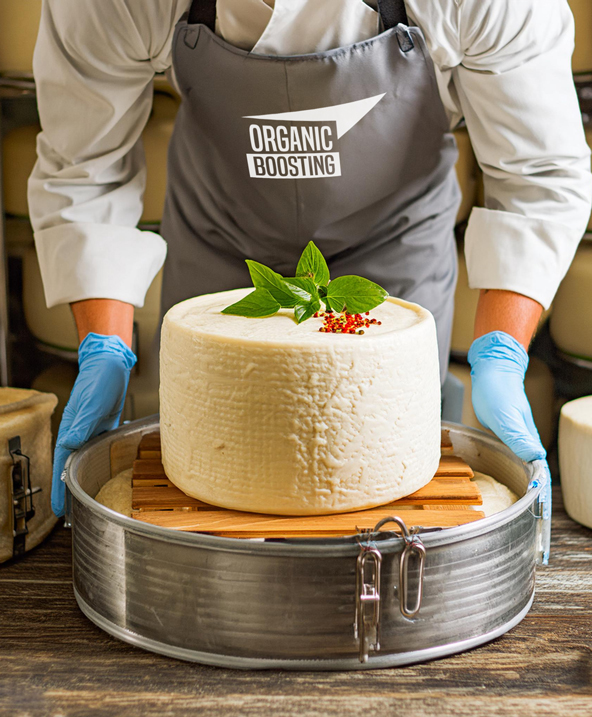
Organic Milk: The Foundation of Flavor
The organic milk used in cheesemaking is a reflection of the cows’ diet and living conditions. Untainted by synthetic additives or growth hormones, this milk boasts a rich, creamy texture and a distinctive flavor profile that serves as the foundation for the cheese’s character.
Artisanal Techniques and Organic Ingredients
Organic cheesemakers employ time-honored artisanal techniques, often passed down through generations, to coax the milk into its desired form. From the careful selection of organic cultures and rennet to the meticulous monitoring of temperature and pH levels, each step is executed with precision and reverence for tradition.
Organic ingredients, such as herbs, spices, and fruits, are skillfully incorporated, infusing the cheese with unique flavors and aromas that celebrate the bounty of nature.
Aging and Maturation
The aging and maturation process is a critical stage in organic cheese production, where time and patience are key allies. Carefully controlled environments, such as temperature-regulated caves or humidity-controlled rooms, allow the cheese to develop its distinct character and complexity.
As the cheese rests, intricate biochemical processes unfold, transforming the texture, aroma, and flavor profiles into a harmonious symphony of taste. Organic cheese-makers vigilantly monitor this process, ensuring that each batch achieves its full potential.
Organic Cheese Varieties
The organic cheese realm is a veritable kaleidoscope of flavors, textures, and aromas, each variety a testament to the creativity and craftsmanship of its makers.
Fresh and Soft Varieties
- Organic Cottage Cheese: A creamy, fresh cheese with a delicate, slightly tangy flavor, perfect for breakfast, salads, or as a versatile ingredient in various dishes.
- Organic Cream Cheese: Velvety smooth and rich, this spreadable cheese is a beloved staple for bagels, desserts, and savory dips alike.
- Organic Brie: A luxurious soft-ripened cheese with a bloomy rind, offering a buttery texture and a delightfully earthy aroma.
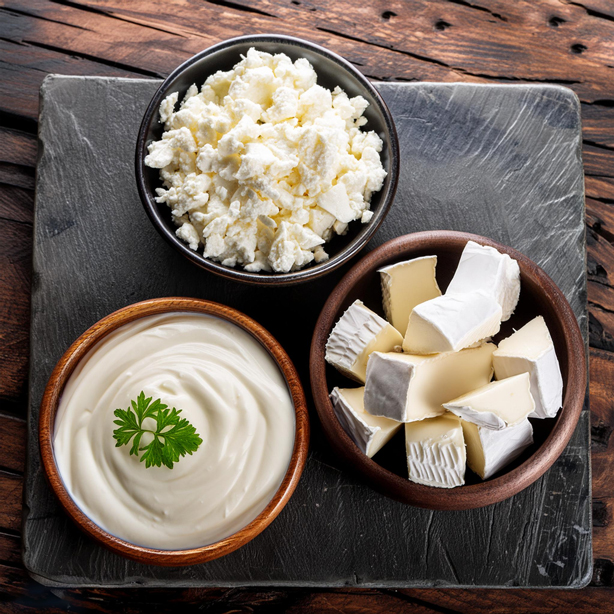
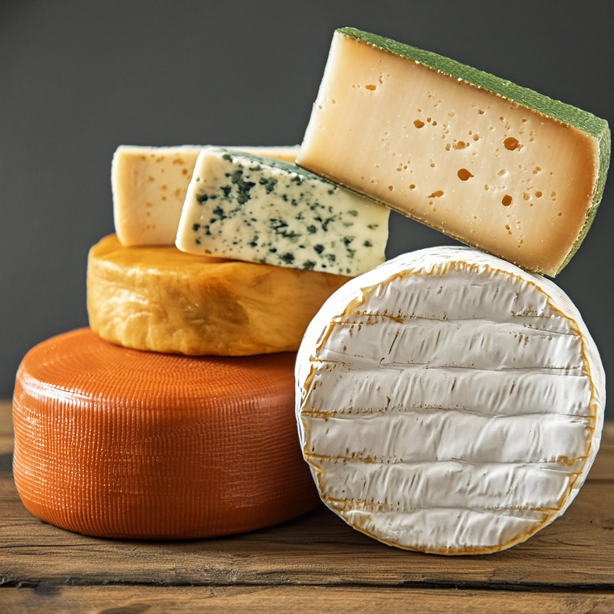
Semi-Soft and Semi-Hard Varieties
- Organic Gouda: A semi-hard Dutch classic with a firm yet creamy texture and a nutty, caramelized flavor that deepens with age.
- Organic Monterey Jack: A versatile semi-soft cheese with a mild, slightly tangy taste, perfect for melting or enjoying on its own.
- Organic Havarti: A buttery, semi-soft Danish cheese with a subtle sweetness and a creamy, almost fudge-like texture.
Hard and Aged Varieties
- Organic Cheddar: A beloved staple, ranging from mild to sharp, with a firm texture and a rich, tangy flavor that intensifies with age.
- Organic Parmesan: A hard, grating cheese with a robust, nutty flavor and a granular texture, perfect for grating over pasta or salads.
- Organic Gruyère: A firm, slightly grainy Swiss cheese with a complex, nutty flavor and a distinctive aroma reminiscent of mushrooms and earth.
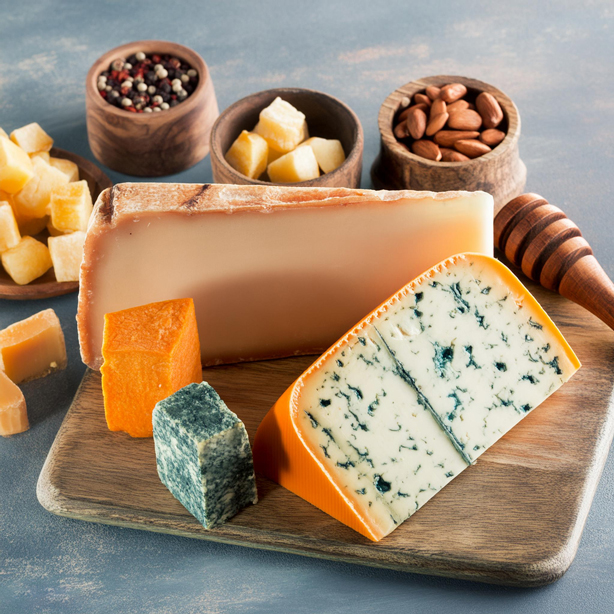
Organic Cheese and Sustainable Packaging
As the organic cheese industry continues to grow, innovative approaches to sustainable packaging have emerged, further reducing the environmental footprint of this cherished delicacy.
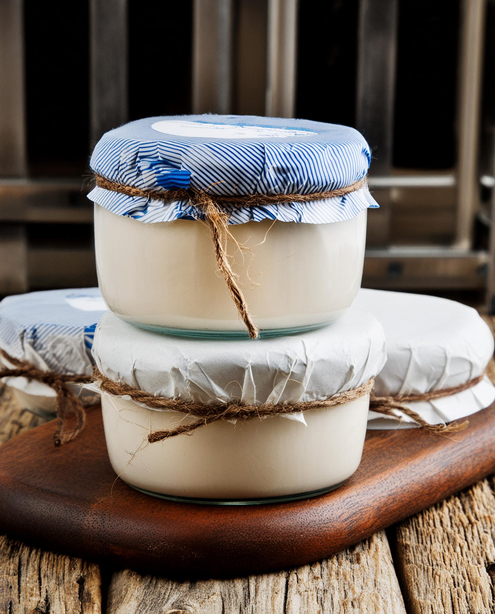
Eco-Friendly Materials
Many organic cheese-makers have embraced the use of Eco-friendly packaging materials, such as biodegradable or compo-stable materials derived from plant-based sources. These alternatives to traditional plastic packaging not only minimize waste but also align with the industry’s commitment to sustainability.
Recycled and Recyclable Packaging
The use of recycled and recyclable packaging materials has become increasingly prevalent in the organic cheese sector. By repurposing existing materials or creating packaging that can be easily recycled, cheese-makers are contributing to a circular economy and reducing the demand for virgin resources.
Organic Cheese and Health
Organic cheese offers a treasure trove of health benefits, making it a valuable addition to a well-balanced diet for health-conscious individuals.
Nutrient-Dense Powerhouse
Organic cheese is a nutrient-dense powerhouse, rich in high-quality proteins, essential fatty acids, vitamins, and minerals. These nutrients contribute to various aspects of health, including bone strength, muscle development, and immune system function.
Digestive Health Benefits
The absence of synthetic additives and growth hormones in organic cheese can promote better digestive health. Many organic cheeses are also naturally rich in beneficial probiotics, which support a healthy gut microbiome and aid in digestion.
Reduced Exposure to Harmful Substances
By choosing organic cheese, consumers can minimize their exposure to potentially harmful substances, such as pesticide residues, antibiotics, and synthetic hormones. This reduced exposure can have positive implications for overall health and well-being.
Allergy and Intolerance Considerations
For individuals with food allergies or intolerances, organic cheese can provide a safer alternative. Many organic cheese-makers prioritize transparency in their ingredient lists, allowing consumers to make informed choices and avoid potential triggers.
In conclusion, the soaring demand for organic cheese not only reflects a growing appreciation for sustainability and quality but also translates into significant sales growth. As consumers prioritize health and ethical practices, sales of organic cheese have surged, indicating a strong market trend towards organic and sustainable products. This rise in demand presents lucrative opportunities for organic sellers, contributing to a thriving market and reinforcing the importance of sustainable practices in the food industry.
Contact us today to explore our catalogue of organic and healthy cheeses, and let’s embark together on a journey towards a healthier, more delicious future.
